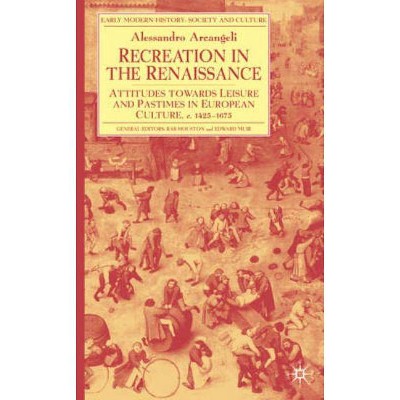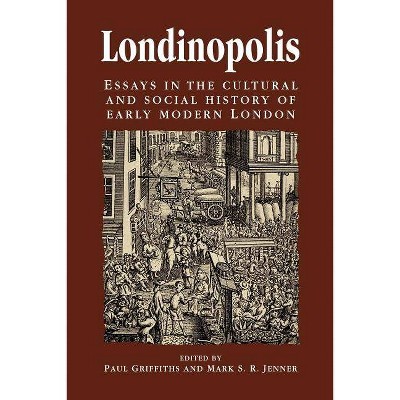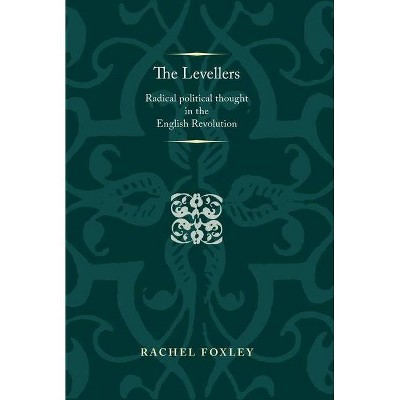The Image of the Soldier in German Culture, 1871-1933 - (Modern History of Politics and Violence) by Paul Fox (Hardcover)

Similar Products
Products of same category from the store
AllProduct info
<p/><br></br><p><b> About the Book </b></p></br></br>"This study examines the force of tradition in conservative German visual culture. It explores thematic continuities in the post-conflict representation of battlefield identities, from the 25th anniversary of the Franco-Prussian War in 1895 to the demise of the Weimar Republic in 1933. Using 40 carefully chosen images from both high and low culture, Paul Fox discusses complex and interdependent responses in German visual culture to a wide spectrum of operational military experience. These include regional conflict, total war, internal security operations and border skirmishes during the period. The book demonstrates how conservative artists, illustrators, photographers, and sculptors engaged in representing this full spectrum of conflict were preoccupied with the inequalities of battlefield encounters and the consequential quest for moral advantage. They furnished material that exemplified everything positive the ideal German male could hope to be when at war - even when the outcome was defeat. Their construction of an imagined martial masculinity based on an aggressive moral superiority was so deeply rooted that the continuities taken forward eventually provided a basis for a programmatic imagining of how Germany might again exert its political presence as a great military power in Central Europe after 1918. The Image of the Soldier in German Culture, 1871--1933 is an important volume for any historian interested in cultural history, the history of modern Germany or the First World War."--Provided by publisher.<p/><br></br><p><b> Book Synopsis </b></p></br></br>This study examines the force of tradition in conservative German visual culture, exploring thematic continuities in the post-conflict representation of battlefield identities from the Franco-Prussian War in 1870-71 to the demise of the Weimar Republic in 1933.<br/> <br/> Using over 40 representative images sampled from both high and popular culture, Paul Fox discusses complex and interdependent visual responses to a wide spectrum of historical events, spanning world war, regional conflict, internal security operations, and border skirmishes. The book demonstrates how all the artists, illustrators and photographers whose work is addressed here were motivated to affirm German moral superiority on the battlefield. They produced images that advanced dominant notions of how the ideal German man should behave when at war - even when the outcome was defeat. Their construction of an imagined martial masculinity based on aggressive moral superiority became so deeply rooted in German culture that it eventually provided the basis for a programmatic imagining of how Germany might again recover its standing as a great military power in Central Europe in the wake of defeat in 1918.<br/> <i><br/> The Image of the Soldier in German Culture, 1871-1933</i> is an important volume for any historian interested cultural history, the representation of armed conflict in European culture, the history of modern Germany, the Franco-Prussian War, and the First World War.<p/><br></br><p><b> Review Quotes </b></p></br></br><br>The first major study of the patriotic imagery of war in modern Germany, this book<i> </i>is a substantial addition to war and conflict studies, art history and visual culture. Through close analysis of a fascinating and largely neglected visual archive, Fox explores the ideological investments, rhetorical forms, and bodily/perceptual habits of German militarism. In the process, he makes a compelling case for the value of art historical methods and skills to military and social histories of war.<br/>Suzannah Biernoff, Senior Lecturer in Modern and Contemporary Visual Culture, Birkbeck, University of London, UK<br><br>This is an impeccably researched and original approach to the study of armed conflict and its mediation in visual culture. Paul Fox has constructed a fascinating exploration of how warring soldiers were represented in German cultural production between 1871 and 1933. Drawing on a mass of evidence and some remarkable visual material, the book reveals how conservative attitudes were shaped in Germany after defeat in the First World War and draws some compelling conclusions on the link between martial might and the visualisation of national identity.<br/>Paul Gough, Pro Vice-Chancellor & Vice-President, RMIT University, Australia<br><p/><br></br><p><b> About the Author </b></p></br></br><b>Paul Fox </b>is Principal Research Associate in Cultural Property Protection at Newcastle University, UK, and is Secretary of the UK Committee of the Blue Shield, committed to the protection of cultural property in the event of armed conflict. He has extensive military experience delivering intelligence support to operational activities across the spectrum of conflict.
Price History
Price Archive shows prices from various stores, lets you see history and find the cheapest. There is no actual sale on the website. For all support, inquiry and suggestion messagescommunication@pricearchive.us




















